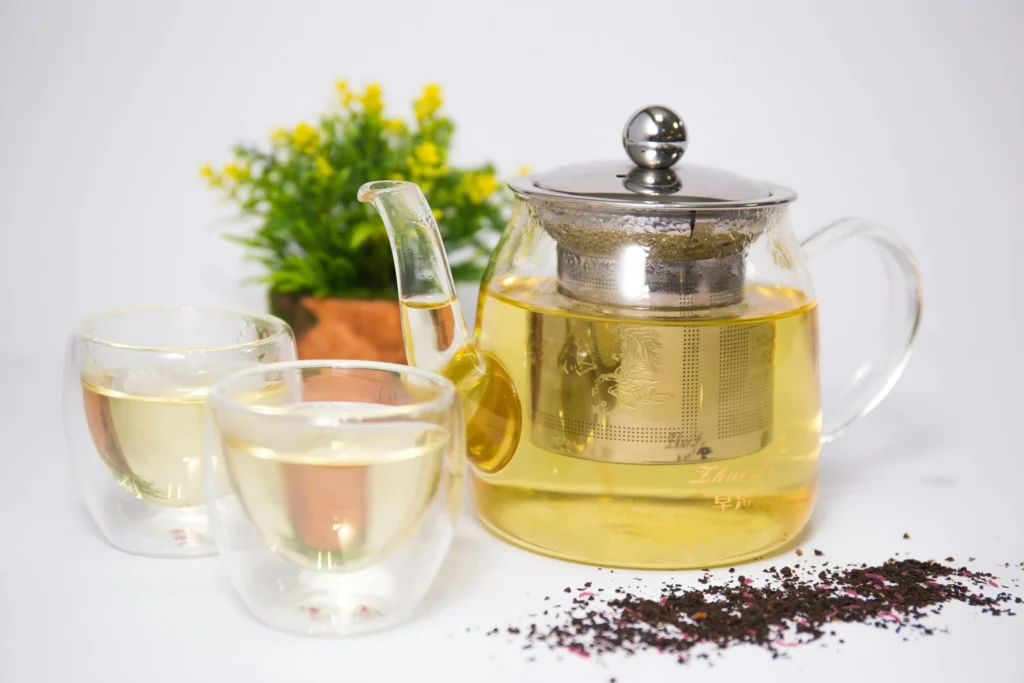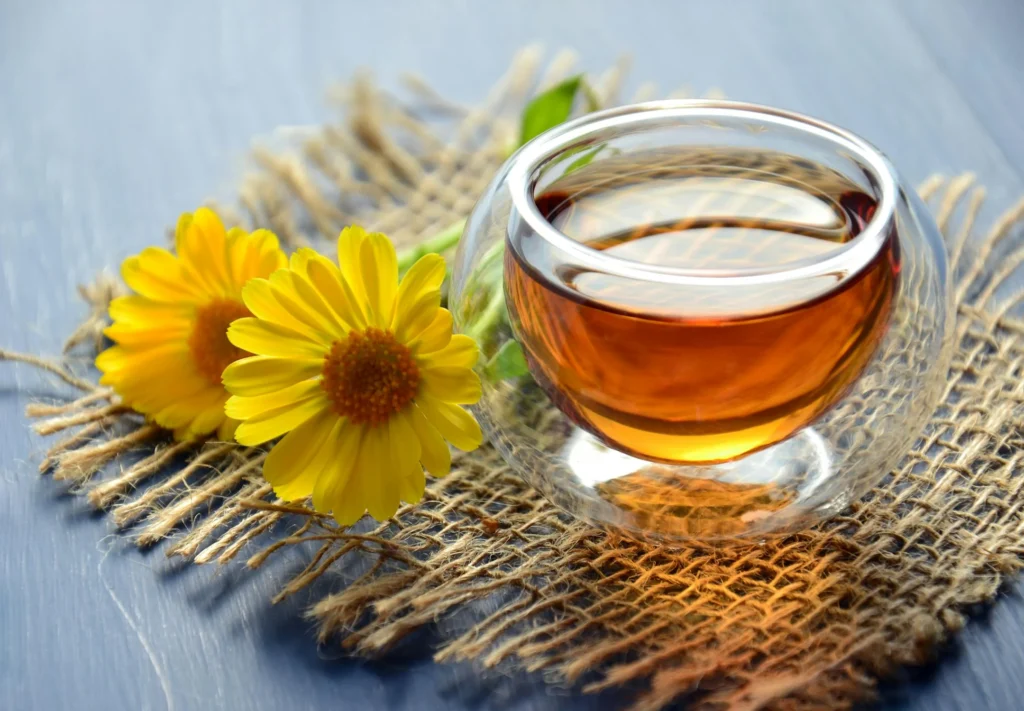Herbal tea—also known as a tisane—is more than just a soothing beverage. It’s a centuries-old tradition rooted in cultures worldwide, offering a natural remedy for various health concerns. Whether you’re seeking to reduce stress, improve digestion, or simply enjoy a flavorful drink, herbal tea provides a delightful and healthful experience.
What Is Herbal Tea?
Unlike traditional tea, which is made from the Camellia sinensis plant, herbal tea is an infusion of herbs, flowers, fruits, seeds, or roots. These plants are naturally caffeine-free, making herbal teas an excellent choice for those looking to reduce their caffeine intake or enjoy a calming drink before bedtime.
Health Benefits of Herbal Tea
1. Stress Relief and Improved Sleep
Herbal teas like chamomile, lavender, and lemon balm are renowned for their calming effects. Chamomile, in particular, has been shown to increase levels of serotonin and melatonin, hormones that promote relaxation and sleep. Incorporating a cup of chamomile tea into your evening routine may help reduce stress and improve sleep quality .
2. Digestive Aid
Herbs such as ginger, peppermint, and fennel have been traditionally used to alleviate digestive discomfort. Ginger tea can help reduce nausea and stimulate bile production, aiding in digestion. Peppermint tea relaxes the muscles of the digestive tract, easing symptoms of indigestion. Fennel tea is known to relieve bloating and gas, making it a popular choice after meals .
3. Immune System Support
Many herbal teas are packed with antioxidants and vitamins that can bolster the immune system. Elderberry tea, for example, is rich in vitamin C and has been shown to reduce the severity and duration of colds. Echinacea tea may stimulate the immune system, helping the body fight off infections .

4. Anti-Inflammatory Properties
Chronic inflammation is linked to various health issues, including arthritis and heart disease. Herbal teas like ginger and turmeric contain compounds that have anti-inflammatory effects. Regular consumption of these teas may help reduce inflammation and associated pain .
5. Skin Health
Certain herbal teas can promote healthy skin. Rooibos tea is rich in antioxidants and has been used to treat skin conditions like acne and eczema. Green tea, another popular herbal option, contains polyphenols that may protect the skin from damage and reduce signs of aging .
6. Weight Management
Herbal teas such as green tea, hibiscus, and lemongrass are often included in weight management programs. Green tea contains catechins, which may increase metabolism and fat burning. Hibiscus tea can help lower blood pressure and reduce fat accumulation. Lemongrass tea is a natural diuretic, aiding in detoxification .
Popular Herbal Tea Varieties
- Chamomile: Known for its calming effects, chamomile is often used to promote sleep and reduce anxiety.
- Peppermint: Aids in digestion and relieves headaches.
- Ginger: Helps with nausea and has anti-inflammatory properties.
- Lemon Balm: Reduces stress and improves sleep quality.
- Hibiscus: Rich in vitamin C and antioxidants, supports heart health.
- Rooibos: Packed with antioxidants, supports skin health.
- Echinacea: Boosts the immune system and may reduce cold symptoms.
How to Brew the Perfect Cup of Herbal Tea
Brewing herbal tea is an art that can enhance the flavor and potency of the herbs. Follow these steps for an optimal tea experience:
Step 1: Measure the Herbs
Use approximately one teaspoon of dried herbs per cup of water. For fresh herbs, use about one tablespoon.
Step 2: Boil Water
Bring fresh, filtered water to a boil. The temperature of the water should match the type of herb you’re using. For delicate herbs like chamomile, use water just below boiling to preserve their subtle flavors.
Step 3: Steep the Herbs
Pour the hot water over the herbs and cover the cup to trap the steam. Steep for 5–10 minutes, depending on the herb. Longer steeping times may result in a stronger flavor but can also extract more tannins, which may make the tea taste bitter.
Step 4: Strain and Serve
After steeping, strain the herbs and serve the tea hot. You can add honey, lemon, or other natural sweeteners to enhance the flavor.
Tips for Storing Herbal Tea
To maintain the potency and flavor of your herbal teas:
- Store dried herbs in airtight containers away from light, heat, and moisture.
- Keep herbal teas in a cool, dark place to prevent degradation.
- Use herbs within a year for optimal freshness.
DIY Herbal Tea Blends
Creating your own herbal tea blends allows you to customize flavors and health benefits. Here are a few simple combinations:
- Calming Blend: Chamomile, lavender, and lemon balm.
- Digestive Blend: Peppermint, ginger, and fennel.
- Immune Boosting Blend: Echinacea, elderberry, and hibiscus.
- Anti-Inflammatory Blend: Turmeric, ginger, and cinnamon.
Experiment with different herbs to find blends that suit your taste and health needs.
Conclusion
Herbal tea is more than just a beverage; it’s a natural remedy with a rich history and numerous health benefits. Whether you’re looking to relax, improve digestion, or support your immune system, there’s a herbal tea to suit your needs. By understanding the benefits of different herbs and how to brew them properly, you can enjoy a cup of herbal tea that not only tastes good but also contributes to your overall well-being.
Remember to consult with a healthcare professional before using herbal teas as a treatment for medical conditions, especially if you are pregnant, nursing, or taking medications. Enjoy exploring the world of herbal teas and discovering the perfect blend for you!


Pingback: 10 Incredible Health Benefits of Pomegranate Juice and How to Enjoy It Daily - delisiousresipes.com